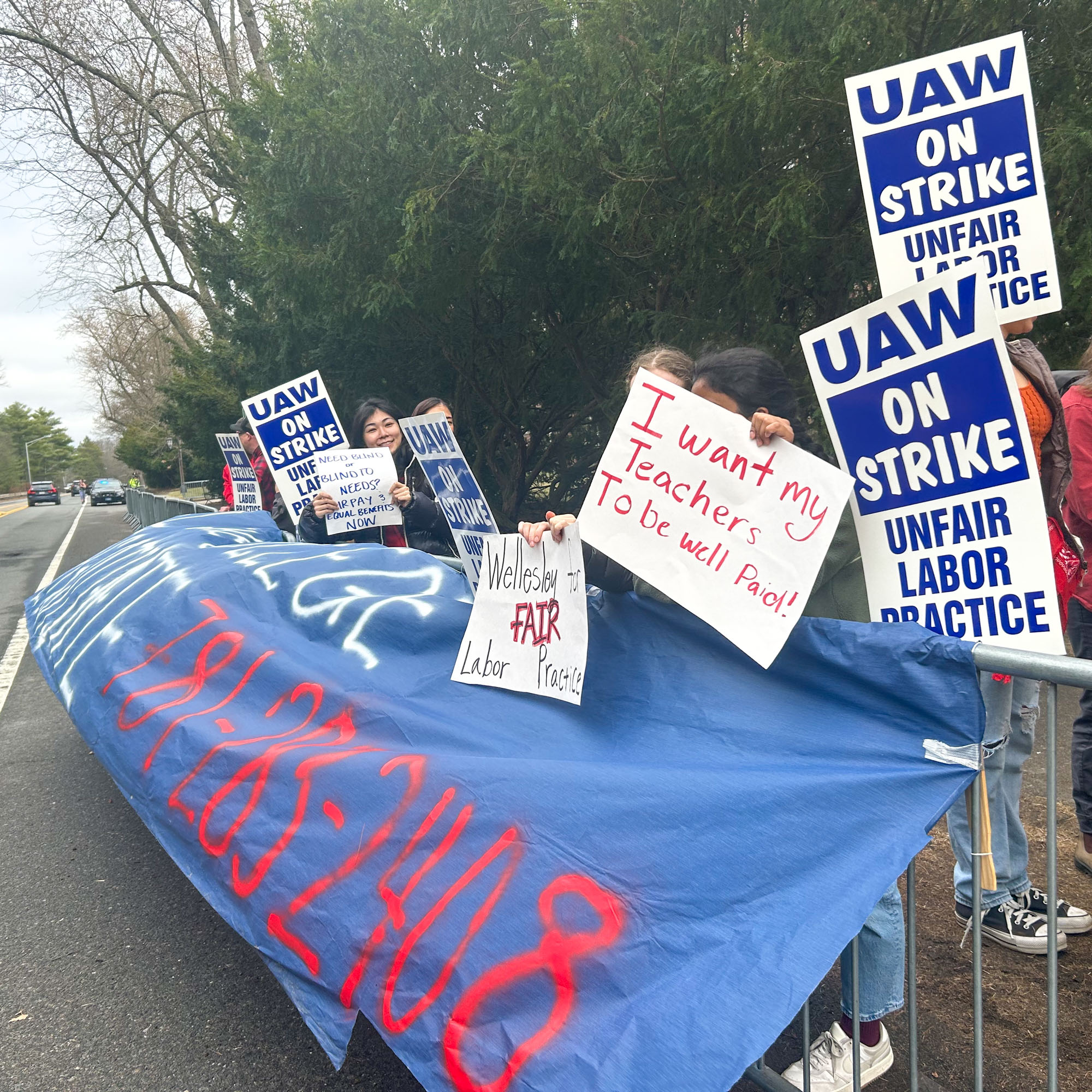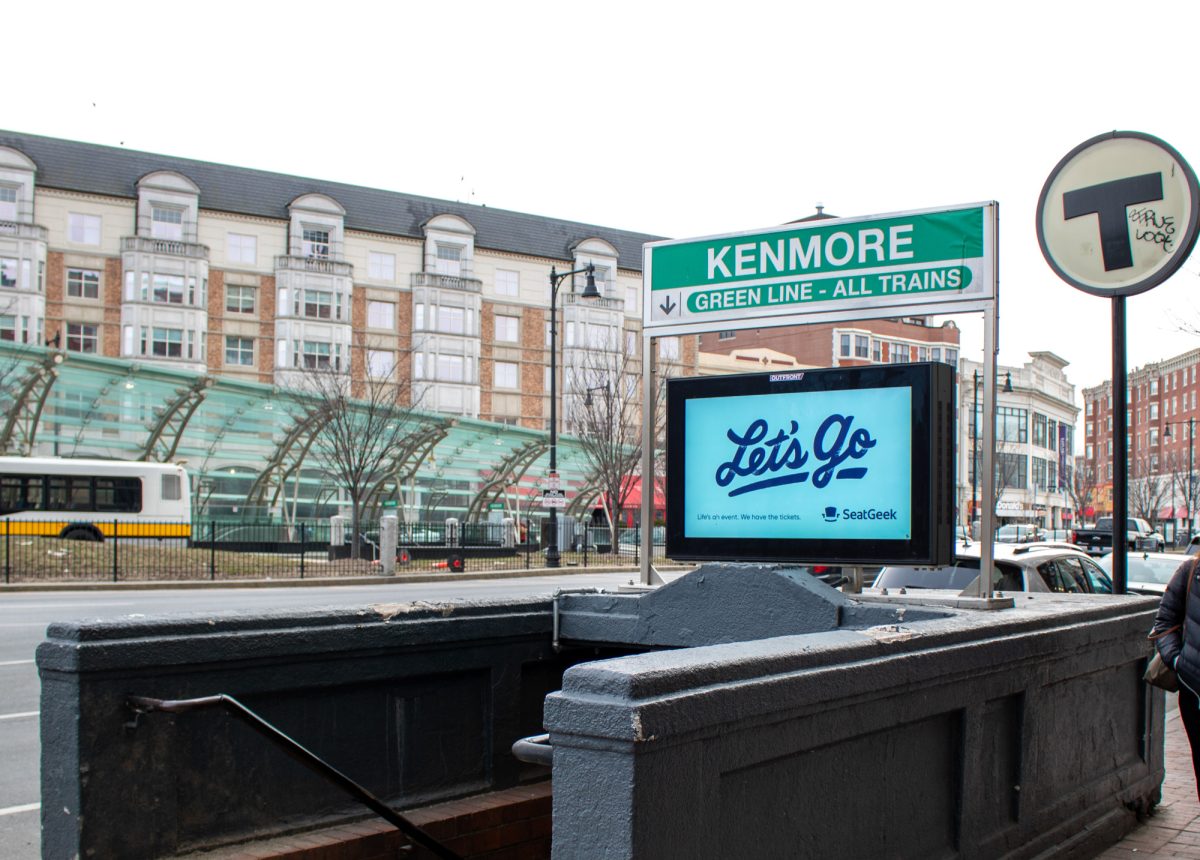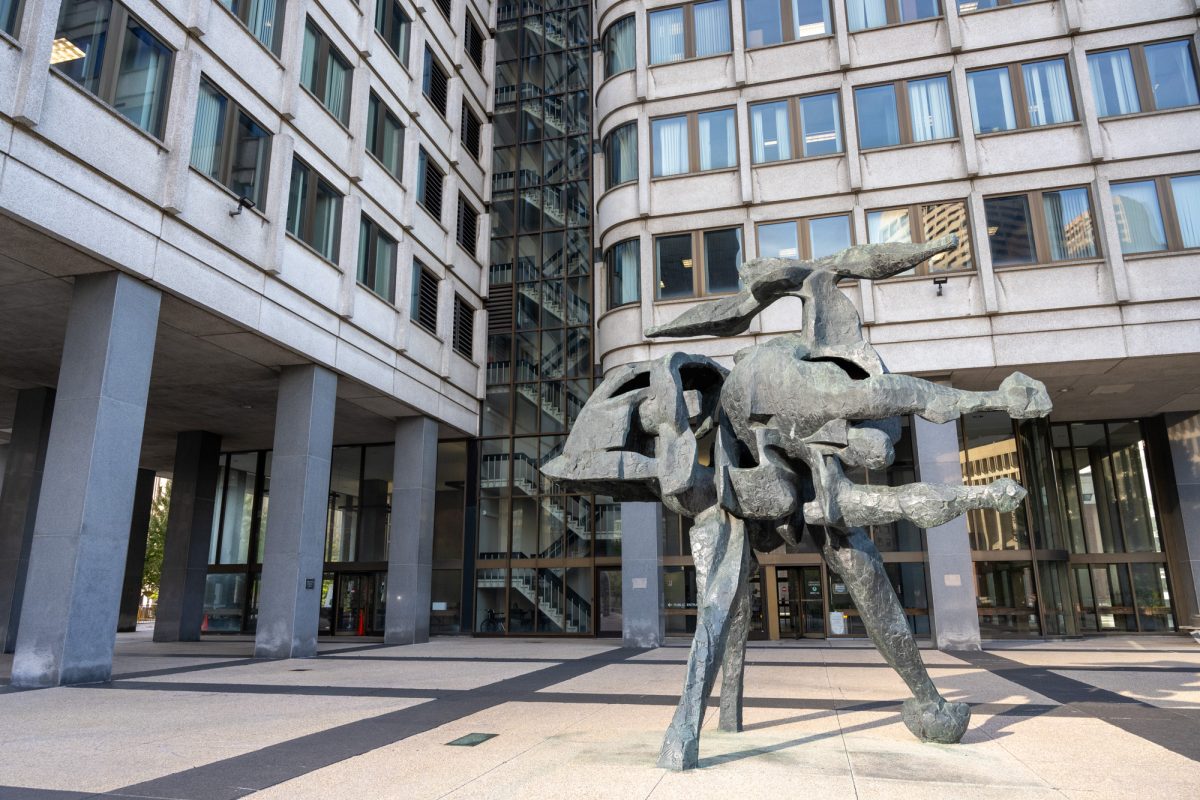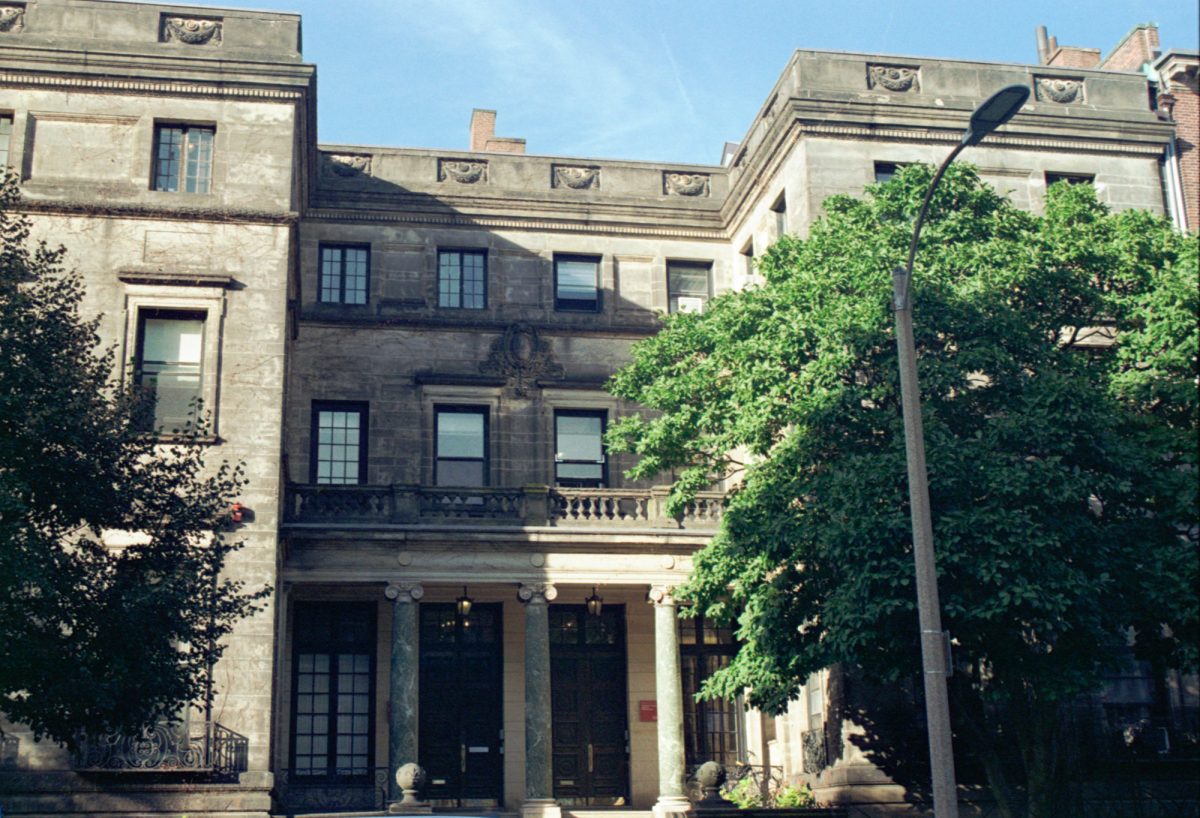
As Wellesley College’s non-tenure track faculty strike entered its fifth day Monday, students and faculty gathered near the town’s Central Street, holding signs in support of the Wellesley Organized Academic Workers Union.
“We believe, as students, that it’s just as important for us to be out here, to stand for our faculty, as it is for the faculty to stand up here for themselves,” said Wellesley senior Luca Quintana, as they held a poster that read “we support our faculty.”
After 10 months of failed contract negotiations between the union and the college administration, WOAW-UAW began striking March 27, addressing issues regarding wages, titles and benefits for the non-tenured track faculty at Wellesley.
The day before the strike began, Wellesley President Paula Johnson, Provost Courtney Coile and Chief Human Resources Officer Carolyn Slaboden released a statement to the college community explaining that the union rejected their proposed bargaining packages.
“The College’s team was very disappointed by the union’s response and frustrated that it rejected our meaningful package offers without suggesting alternatives that could narrow, rather than expand, our differences,” the statement read.
In response to the strike, Coile and Registrar Carol Shanmugaratnam released a statement March 27, announcing that the administration is implementing a plan to ensure students receive full academic credit. The plan includes reducing the credit for courses taught by non-tenure-track faculty to 0.5 units unless a substitute instructor continues the course and postponing the April 8 fall registration
“We do not know what the duration of the strike will be, and we must ensure that you will be able to earn credit for the semester no matter what happens,” Coile and Shanmugaratnam wrote. “We hope that the strike will end quickly and that students and faculty will be back in their regular routine soon.”
The administration’s response has drawn criticism from students and faculty, with some concerned about potential effects on students’ degrees and eligibility for financial aid.
Wellesley sophomore Alex Teasley said she is the only student she knows whose classes have not been affected by the strike.
“Even as a student where my classes aren’t impacted, the fact that all of our credits are going to have to be re-evaluated because of this decision, it could threaten our accreditation,” she said. “Everyone’s degree is threatened by this. This has an implication for everyone.”
Quintana said even though their classes were not affected, they are still frustrated on behalf of others who were impacted.
“The most upsetting part about the credits for me, even if I’m not directly affected, is the fact that there’s no other college that has done this,” Quintana said. “Wellesley really praises itself to be an institution of trailblazers, but this is the last thing that you want to be trailblazing. This is ultimately terrible for their image.”
A Wellesley STEM professor said the most frustrating aspect has been the administration’s “lack of urgency” in engaging more frequently with bargaining discussions.
“Given the drastic measures they’ve taken to give students only half a credit and move them to other classes, I wish they had put that effort into bargaining with us, so we could avoid this whole thing,” he said.
Some students and faculty criticized the administration for what they view as a use of students as leverage in negotiations.
A Wellesley creative writing professor said the administration implemented “scare tactics” after WOAW-UAW voted to authorize the strike.
“They’re trying to hold up the students as a bargaining chip to pressure them into not striking,” Teasley said. “It’s appalling, and I’m ashamed to go here … No other institution of higher education has pulled the student credit hours into the negotiation in this way.”
Additionally, an email sent March 27 by Colie to Wellesley students suggested the new credit-reduction plan will not only affect students on financial aid, but international students as well.
“[The College is] perpetually bringing up the status of our international students,” the STEM professor said. “[They’re] trying to say ‘don’t go on strike now, because these students need the credits, and because the Trump administration, ICE agents, are roaming around looking for reasons to deport people.’”
An editorial published in The Wellesley News accused the college of using students as a “bargaining chip” in negotiations while taking no accountability for their actions.
“The college is very much trying to paint the picture that the administration is the reasonable ones, the civil ones,” Quintana said. “That’s not the reality. We all know that, as students, the administration is putting their own money first, their own greed first, and we’re not happy.”
As tensions persist and negotiations remain at a standstill, striking against unfair labor practices continues.
“We’re on strike because the college has committed unfair labor practices, and they’re hindering the progress of negotiations at the bargaining team,” said Leah Okumura, the press liaison of WOAW-UAW and a lecturer in Wellesley’s Biological Sciences laboratory.
Athena Hsu-Chen, a freshman at Wellesley, said the situation is “sad and demoralizing.”
“Professors who have dedicated their entire lives to academia are not being paid enough,” she said. “Some of them are being paid poverty wages. I was talking to a professor on Friday morning, and they said they get paid $20,000 a year.”
With the large support from students, the creative writing professor said there has been “a lot of solidarity.”
“Everyone is in support of the strike,” they said. “I’m just incredibly proud of the students who were willing to show up and support us.”
Senior Madison Courtney said she hopes WOAW-UAW feels supported by the students, as the non-tenure track faculty is the “heart” of the Wellesley community.
“They teach mostly introductory classes, labs, those times where you’re getting the foundation of your learning at Wellesley,” Courtney said. “That kind of support in and outside of the classroom deserves to be paid fairly.”
The support from Wellesley students is inspiring and gives them strength to continue, Okumura said.
“We are out here to hopefully eventually get to a fair contract for us, but also for them,” she said. “It’s so great to have their support, and it really means a lot.”
Looking ahead, Okumura said the resolution lies with the administration.
“It’s entirely within the administration’s hands to end the strike,” Okumura said. “As soon as they want to end it, they know exactly what our demands are and how to meet them, and it’s really up to them to come to the table.”













































































































Roberta Redburn • Apr 4, 2025 at 3:40 pm
I support the teachers!
Leona Moore • Apr 2, 2025 at 11:19 pm
I completely understand the frustrations of the students and faculty involved in the Wellesley strike. It’s tough to see such a divide in the community, and I hope they find a resolution soon!